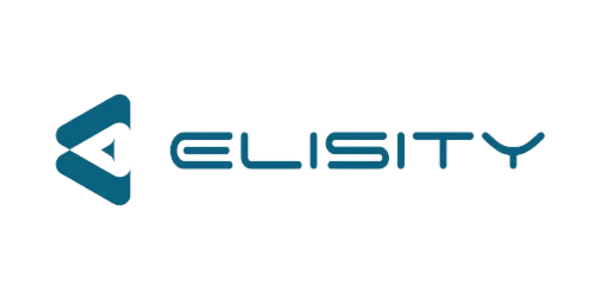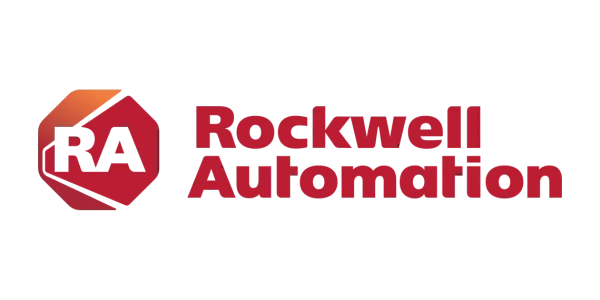Preparing for a cybersecurity job interview is like preparing for a cyber mission. Every stage of the interview process presents its distinct obstacles, progressing from the initial HR round to the vital final discussions with top executives. Your ability to prepare thoroughly can significantly enhance your performance at every step.
To successfully move through these various phases, it’s beneficial to approach each interview as a puzzle to solve. This method highlights your technical skills and shows your preparedness to join a cybersecurity group.
Improve your abilities through thorough training and qualifications to arm yourself with the resources needed to stand out. Your dedication to growing and developing will leave a lasting impact on potential employers.

Preparing for a Cybersecurity Job Interview
Approaching a job interview in cybersecurity is like performing a detailed penetration test. First, you gather information about the company’s environment and learn about the interview stages you will face. Prepare to navigate five different stages: the initial chat with a recruiter, an in-depth conversation with a hiring manager, interaction with potential peers, a hands-on assignment, and finally, a high-level discussion with C-level executives.
Each stage has a distinct purpose, so tailor your approach accordingly. Stay updated on cybersecurity trends and how white hat hackers operate, as this knowledge might give you an edge. Embrace each step as an opportunity to demonstrate your skills, showing what you know and how you think and solve problems.
Preparation Will Propel You Through Each Interview Stage
Solid preparation is a must. Take your time understanding the company and its objectives to tailor your responses to reflect how your skills and experiences align with what they seek. This means researching the company thoroughly—knowing its missions, values, and services. Tailor your strengths to showcase how you can contribute to their overarching goals.
In cybersecurity roles, particularly as a penetration tester, be ready to discuss your achievements and what motivates you to pursue the position. Demonstrate awareness of how your role fits into the organization to convey your commitment and understanding of the field. Your ability to articulate personal accomplishments and career motivations speaks volumes about your readiness for the role.
For those new to the field, such as entry-level cybersecurity positions, preparation extends beyond technical skills. Employers often assess your enthusiasm and willingness to learn. Engaging in cybersecurity training or participating in relevant extracurricular activities reflects your dedication and eagerness. These aspects can set you apart when experience is limited.
You may also like Top 30 SCADA Technician Interview Questions and Answers for 2025.
To navigate the stressful nature of interviews, being well-prepared allows you to handle questions confidently and maintain poise throughout the interview process. Your efforts in prep work transform potential hurdles into opportunities to shine. Take the time to plan, and you’ll find each stage of the interview holds fewer surprises and more chances to impress.
Step 1: The HR Introduction
The first phase of your journey is meeting the recruiter or the talent acquisition expert. Their job is to determine whether you meet the basic qualifications, understand the company’s goals, and are driven to take on the role you’re aiming for.
Tips for success in this initial meeting:
- Know the Company: Familiarize yourself with the organization’s mission. Connect it personally to your goals and make that connection clear. For instance, if you’re drawn to a company like Hack The Box, highlight your enthusiasm for boosting others’ cybersecurity skills or expanding your knowledge base.
- Highlight Relevant Experience: When discussing previous roles, emphasize the responsibilities most relevant to the position you desire. Share experiences directly related to the job description, demonstrating that you’ve tackled similar challenges.
- Show Industry Insight: Showing off any knowledge you have about the industry can impress. It indicates a proactive approach to learning and staying updated with trends and developments, underscoring your eagerness to align with the organization’s path.
- Visualize the Role: Deeply study the job description. Imagine yourself handling the duties listed and expressing your excitement for the most thrilling parts, along with any challenges you foresee. This approach shows your sincere interest and seriousness about applying and making an impactful contribution.
By preparing this way, you’ll be poised to make a substantial impression during the HR segment of your interview experience.
Phase 2: Hiring Manager Conversation
During the interview with the hiring manager, you’ll continue to expand on your technical skills and suitability for the cybersecurity role. This conversation is less rigid than others, focusing instead on a deeper insight into your abilities and personality. The aim is to assess your technical expertise, potential fit within the team, and capacity to adapt and manage challenges effectively.
Tips for a successful interview:
- Consistency is Key: Ensure that your answers align with what you’ve discussed in previous interviews. Hiring managers often consult with recruiters, so consistency in your narrative is critical. Highlight your experience authentically, and avoid contradicting past discussions.
- Structured Storytelling: Explain your current roles and your accomplishments in a clear and compelling manner. Break down the steps you took to achieve your goals, providing a balanced view of your successes and areas for improvement.
- Showcase Industry Insight: Share your understanding of cybersecurity best practices and discuss what you find appealing about the field. Demonstrating awareness of upcoming challenges or trends in cybersecurity can set you apart.
- Build a Connection: Doing some background research on the hiring manager can provide talking points that resonate personally. Engaging with topics relevant to their work, such as notable projects or events they’ve been involved in, can help foster a more meaningful dialogue.
Learn How to Specialize in Cybersecurity: Your Easy Guide to Success.
Stage 3: Navigating the Peer Interview
When engaging in a peer interview for a cybersecurity position, a major focus is on your interaction with future colleagues. This interaction is key to demonstrating how well you’ll fit into the team. It’s important to consider not only your answers but also how you present them.
Take a moment to pause and understand the questions before responding, which paints a picture of attentiveness and appreciation for detailed communication.
During the interview, take the opportunity to inquire about team dynamics. Asking questions such as who the major stakeholders are or the key performance indicators (KPIs) can be enlightening. Additionally, understanding the team’s challenges regarding cybersecurity risks and security policies will provide you with insights into the daily operations and strategic priorities.
Familiarize yourself with the company’s culture by learning how decisions are made and how the team collaborates on significant issues. Situational interview questions might arise, testing your ability to handle security incidents and manage risk effectively.
Displaying an understanding of these aspects shows your genuine interest and indicates that you are serious about becoming an integral part of the team. Being knowledgeable and asking about behavioral interview topics can also highlight your potential contributions to the team’s success.
Stage 4: Navigating the Task-Based Interview
In task-based interviews, your technical skills and ability to communicate effectively are closely examined. You need to show what you can do and how you think and solve problems.
Start by thoroughly understanding the task at hand. Ask questions if any part of the instructions is unclear to ensure you’re on the right track from the beginning. Avoid making assumptions, but if you must, clarify them in your deliverable. This shows your eagerness to excel and your careful approach to problem-solving.
Concentrate on delivering an outstanding work sample that aligns with the job role. If you’re handling tasks related to network security or analyzing vulnerabilities, prioritize aspects that are vital for the position.
Inquire about what factors are crucial or in demand to tailor your focus correctly. For roles combining strategic and technical duties, seek clarity on the expected balance, such as “What’s the emphasis on strategic versus tactical tasks?”
Receiving feedback is a key part of the process. Engage with it openly to illustrate your professional growth and maturity. Demonstrating how you can leverage feedback can set you apart as a candidate with a continuous improvement mindset.
Before the interview, get a friend or family member to listen while you practice presenting your assignment. Their outsider perspective can give you valuable tips on clarity and presentation style, even if they aren’t familiar with terms like encryption, intrusion detection, or cloud security. This practice can help you build confidence in discussing technical subjects like symmetric and asymmetric encryption, intrusion detection systems, or firewall management.
Find the right way to highlight your understanding of advanced topics like zero-day exploits or cloud security while maintaining a straightforward and engaging delivery.
Read about 7 Steps to Building a Successful Career in Information Security.
Stage 5: Navigating the Executive-Level Interview
Congratulations on reaching this pivotal stage in the hiring process! Meeting with a C-level executive is an opportunity to showcase your compatibility with the organization’s culture and align with their vision. Here are some tips to help you succeed:
- Be Prepared for Unscripted Queries: Executive interviews are often dynamic. You might encounter unexpected questions that arise naturally from the conversation. Stay adaptable and be ready to provide thoughtful responses.
- Deliver Clear and Focused Responses: C-level executives are pressed for time. Your ability to articulate concise, meaningful answers showcases your enthusiasm for the company and your respect for their schedule. Reference your understanding of crucial cybersecurity challenges, like data breaches and phishing attacks, to highlight your industry awareness.
- Ask Strategic Questions: Express your genuine interest by inquiring about the company’s upcoming innovations or strategies against competitors. Questions like these demonstrate your commitment to the company’s success and your readiness to safeguard against potential threats such as insider threats or data leakage.
Approaching this interview phase with confidence and thoughtful engagement can leave a lasting impression.
Test Your Cybersecurity Interview Skills
Preparing for a cybersecurity job interview can often feel like a challenging journey. It’s important to navigate each step carefully to present yourself as the best candidate for the role. By tailoring your preparation to the hiring process, you’re better equipped to showcase your skills and land that desired position.
Create a list of interview questions you might face, particularly those targeted at professional development. Think about questions like, “How do you stay current with cybersecurity trends?” or “Describe a challenging project and how you managed it.”
Dress professionally and ensure your technology is set up correctly if it’s a virtual interview. Here’s a tip: make a simple checklist of items to prepare, like having a professional outfit ready or confirming your internet connection is stable. Give yourself every advantage to succeed in the interview room.







